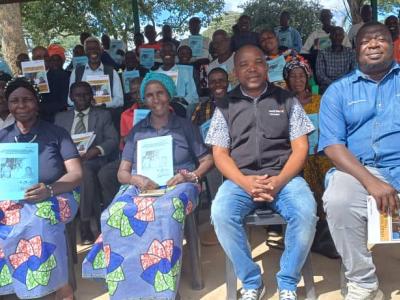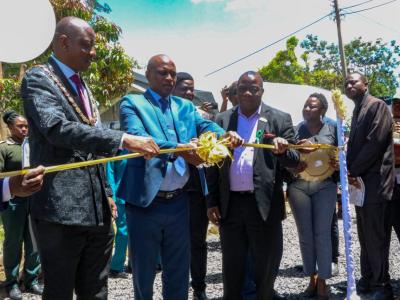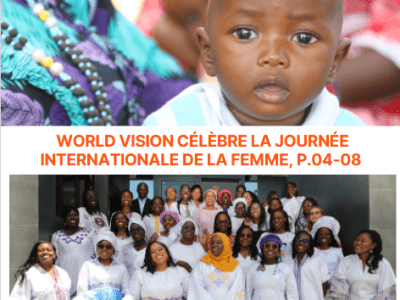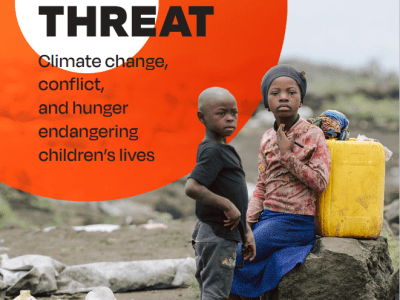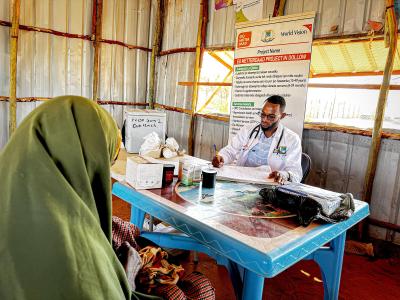article / April 15, 2025
Empowering Communities Through Citizen Voice and Action: A Path to Better Public Services in Chongwe East Area Programme
His Royal Highness Chief Bunda Bunda of the Soli people has applauded World Vision Zambia's Citizen Voice and Action (CVA) approach for transforming community engagement in Rufunsa District. Recognising the tool’s power to drive accountability and improve essential services, Chief Bunda Bunda hailed CVA as a catalyst for sustainable development in his chiefdom.
press release / April 4, 2025
Banteay Meanchey achieves Open Defecation Free status, transforming public health
A child is washing her hands at a handwashing station.
article / March 14, 2025
A New Era in Public Health Emergency Preparedness and Response in Zimbabwe
Zimbabwe has taken a significant step forward in public health emergency preparedness with the official handover of eight state-of-the-art Public Health Emergency Operations Centres (PHEOCs) by World Vision Zimbabwe to the Ministry of Health and Child Care (MoHCC).
publication / April 14, 2025
Senegal Newsletter - March 2025
World Vision Senegal's quarterly newsletter, January to March 2025.
publication / March 13, 2025
Policy Assessment: National governance and infrastructures supporting child participation
National governance and infrastructures supporting children and young people’s collective participation in public decision-making.
publication / April 17, 2025
Triple Threat: Climate Change, Conflict and Hunger endangering children's lives
Climate change, violence, and hunger are trapping vulnerable children in poverty. This report explores their intersection and the urgent need for action.
article / April 7, 2025
TB diagnosis made easier
Meet Haretho, a Somali mother who overcame TB thanks to improved diagnosis and treatment. Her story shows progress in Somalia’s fight against tuberculosis.
publication / April 3, 2025
Annual Impact Report 2024 (Khmer)
World Vision Cambodia Annual Impact Report 2024
publication / March 17, 2025
Annual Impact Report 2024
In 2024, World Vision International – Cambodia (WVI-C) made a profound impact, reaching over 3 million children across the country. Through strategic partnerships with government institutions, donors, and civil society, we implemented programs in education, health, child protection, economic development, and climate resilience. These efforts directly contributed to Cambodia’s Pentagonal Strategy and the United Nations Sustainable Development Goals (SDGs), helping to break cycles of poverty and create sustainable opportunities for vulnerable communities.
Key achievements this year included providing quality education to over 197,000 children, training more than 3,000 teachers, and expanding health and nutrition services to 54,000 children and 19,000 pregnant women. Our economic empowerment programs helped over 4,000 farmers adopt climate-smart agriculture, while social accountability initiatives improved public service delivery in over 60% of communes. Additionally, youth-led research on climate change influenced national conversations on environmental sustainability.
These achievements would not have been possible without the collaboration of development agencies, corporate sponsors, and government ministries. With funding from organizations such as the World Bank, DFAT, EU, GIZ, and SDC, we continue to scale impactful solutions for Cambodia’s children. As we move forward, we invite development partners and stakeholders to join us in building a future where every child in Cambodia can dream, learn, and thrive. Together, we create lasting change.
publication / April 16, 2025
Hope Without Borders – SitRep Oct–Dec 2024
Latest SitRep on the Venezuela Crisis: progress, stories, and challenges in protecting migrant children across Latin America.
